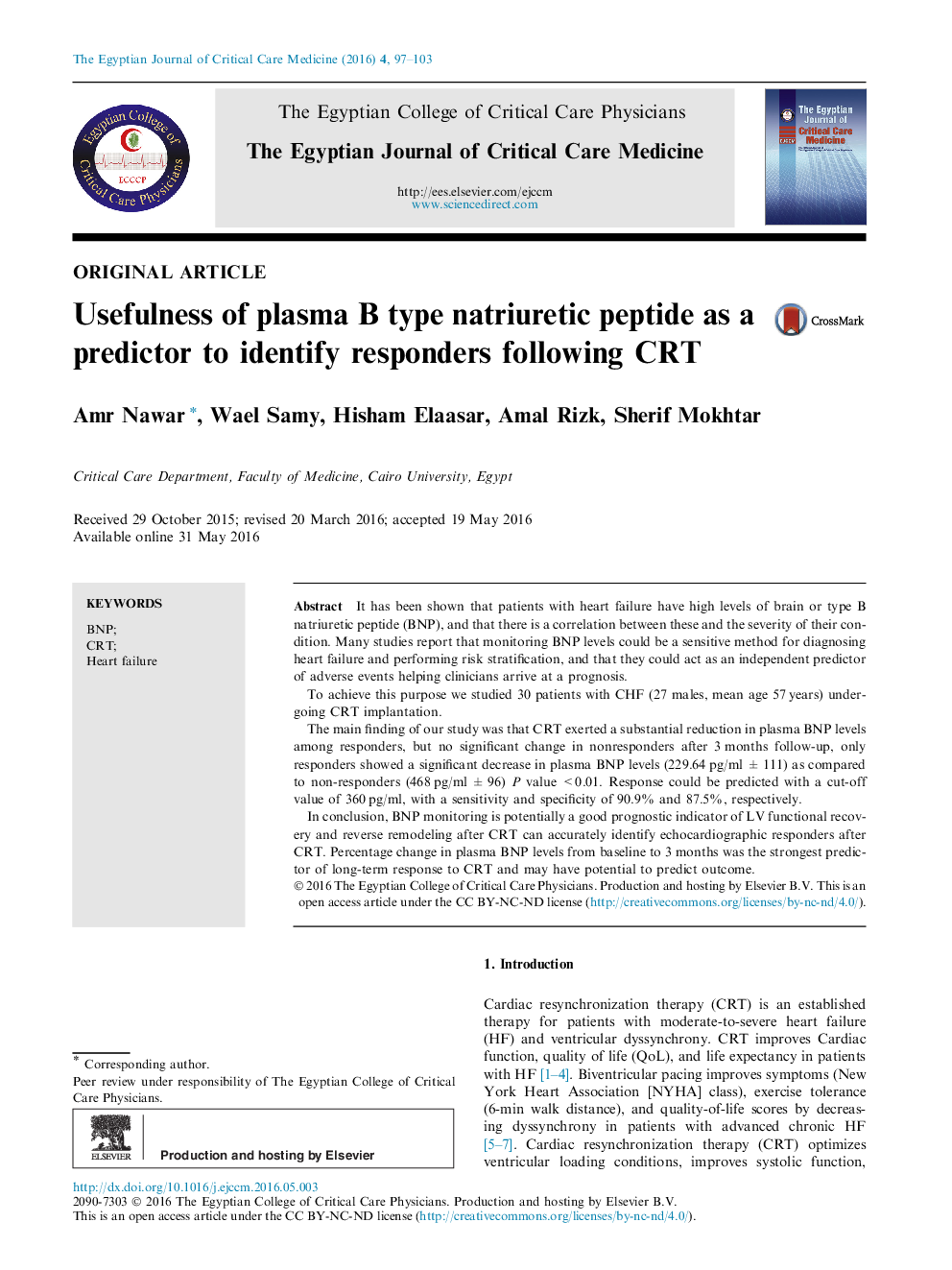| کد مقاله | کد نشریه | سال انتشار | مقاله انگلیسی | نسخه تمام متن |
|---|---|---|---|---|
| 2910855 | 1575308 | 2016 | 7 صفحه PDF | دانلود رایگان |
It has been shown that patients with heart failure have high levels of brain or type B natriuretic peptide (BNP), and that there is a correlation between these and the severity of their condition. Many studies report that monitoring BNP levels could be a sensitive method for diagnosing heart failure and performing risk stratification, and that they could act as an independent predictor of adverse events helping clinicians arrive at a prognosis.To achieve this purpose we studied 30 patients with CHF (27 males, mean age 57 years) undergoing CRT implantation.The main finding of our study was that CRT exerted a substantial reduction in plasma BNP levels among responders, but no significant change in nonresponders after 3 months follow-up, only responders showed a significant decrease in plasma BNP levels (229.64 pg/ml ± 111) as compared to non-responders (468 pg/ml ± 96) P value <0.01. Response could be predicted with a cut-off value of 360 pg/ml, with a sensitivity and specificity of 90.9% and 87.5%, respectively.In conclusion, BNP monitoring is potentially a good prognostic indicator of LV functional recovery and reverse remodeling after CRT can accurately identify echocardiographic responders after CRT. Percentage change in plasma BNP levels from baseline to 3 months was the strongest predictor of long-term response to CRT and may have potential to predict outcome.
Journal: The Egyptian Journal of Critical Care Medicine - Volume 4, Issue 2, August 2016, Pages 97–103
